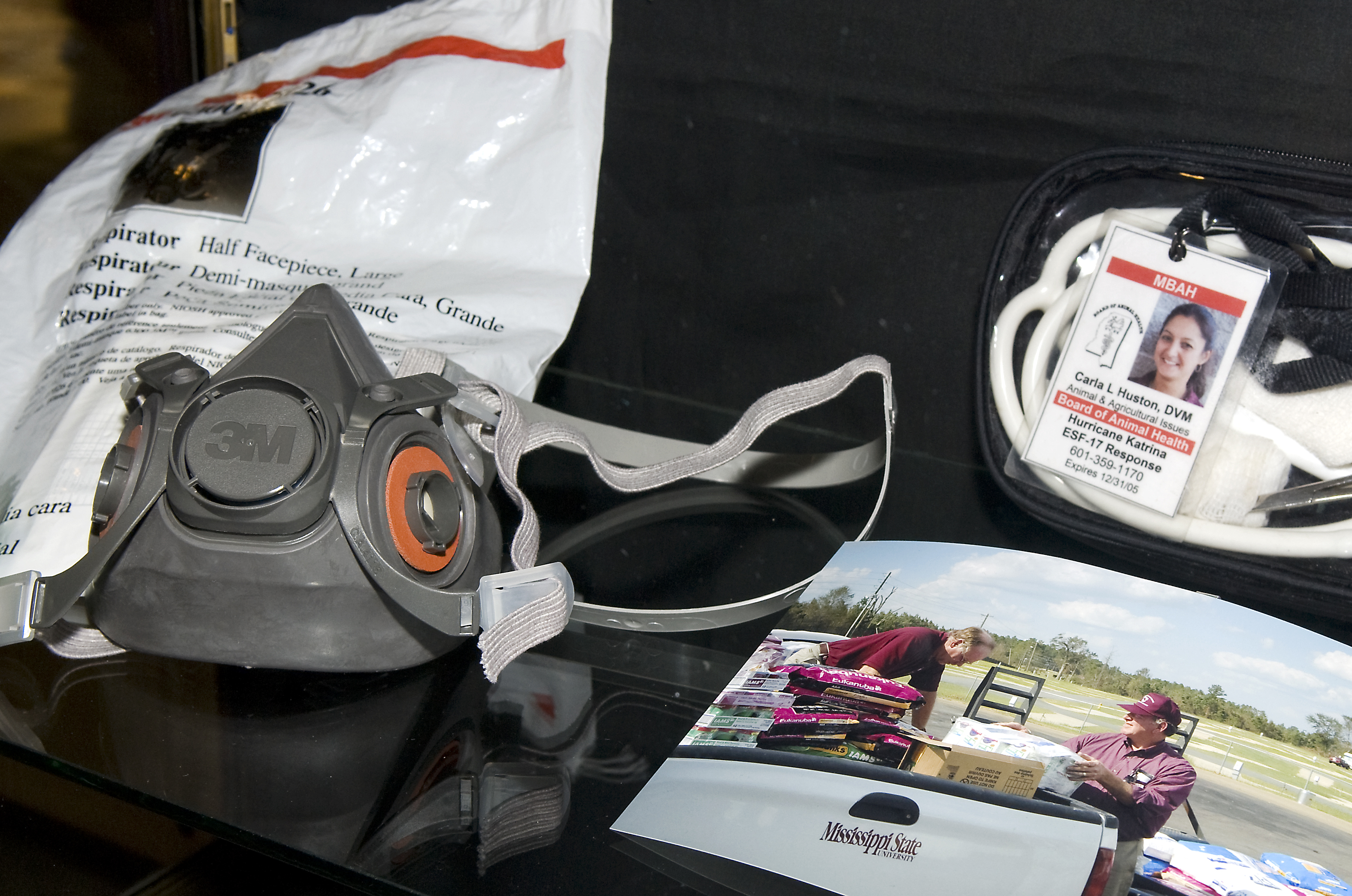Contact: Robbie Ward

Photo by: Kenny Billings
STARKVILLE, Miss.--From a 4-H-distributed stuffed bear to redevelopment visuals and design awards, Mississippi State's Mitchell Memorial Library now features considerable memorabilia related to the university's efforts to help the Gulf Coast rebuild after Hurricane Katrina.
Displayed through Sept. 30 on the second and third floors, the public exhibit also includes photographs, posters, personal accounts, and other pieces related to the land-grant institution's efforts on behalf of South Mississippi post-storm recovery.
Jeremiah Dumas, an assistant research professor at MSU's GeoResources Institute, coordinated with library staff and campus offices of University Relations and Agricultural Communications to organize the collection.
In marking the three-year anniversary of the most devastating natural disaster in the state's history, MSU and the Biloxi Sun-Herald newspaper recently presented design awards in five categories: architecture, landscape architecture, environmental, engineering and planning. Copies of the proposals are among items on display.
Sweeping over southeastern Louisiana and coastal Mississippi in the waning days of August 2005, the massive storm entered the history books as one of the top five most deadly hurricanes and the costliest in U.S. history.
Dumas also chaired the Sun Herald design awards committee that included other campus colleagues as judges. The exhibit illustrates how MSU worked with non-profit organizations, state and federal agencies and other groups to help with the recovery process, he observed.
For example, the Bulldogs in Response program took volunteer faculty and staff members and students to help coast residents cope with great adversities, including the loss of homes. Other direct contributions came from the School of Architecture and departments of landscape architecture and art, among numerous academic areas.
"This exhibit is really to get all of the information for people to see the hard work put into rebuilding the coast," Dumas said.
In addition to the GeoResources Institute, outreach units still working on the recovery effort include the MSU Extension Service, Coastal Research and Extension Center, and Northern Gulf Institute.
For more information, contact Dumas at jdumas@gri.msstate.edu or 662-325-3852.
For more information about Mississippi State University, see http://www.msstate.edu/.